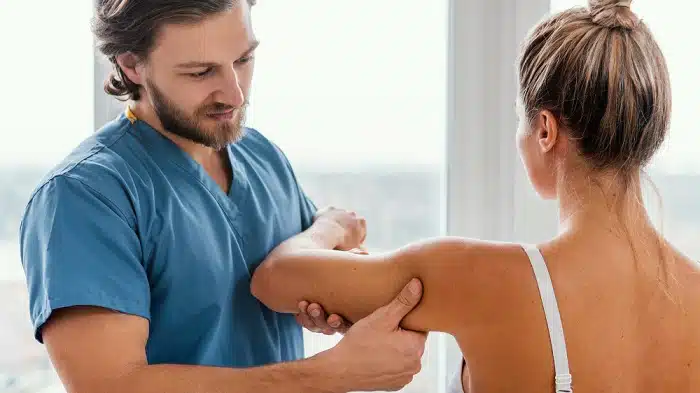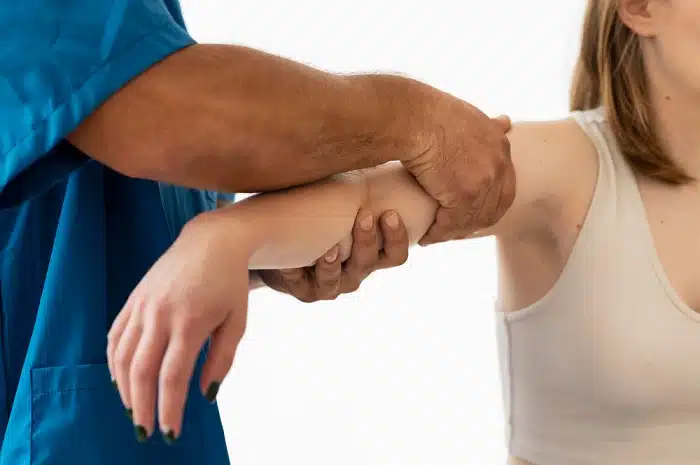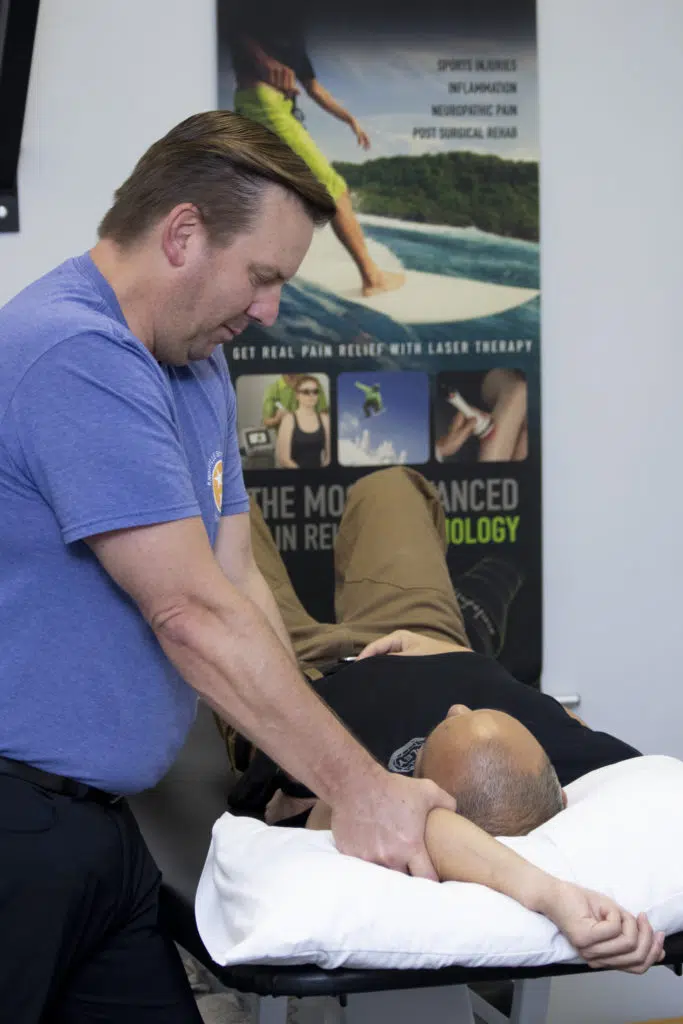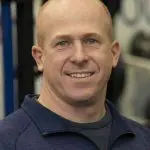
Rotator cuff strains are one of the most common musculoskeletal injuries in sports and even everyday life. They can be extremely painful and debilitating but rest assured that recovery is possible without surgery for a large majority of people. In this article, I would like to quickly outline what the rotator cuff is, what it does, and what your likely outcomes are after injuring it.
The rotator cuff, often incorrectly called the rotary cup, is a group of 4 muscles in your shoulder. It is made up of the infraspinatus, supraspinatus, subscapularis, and teres minor. These muscles control the internal and external rotation of your arm which allows you to do things like throw a ball and reach behind your back or behind your head. While these muscles control the rotation of the humerus, their primary function is to stabilize and control the shoulder joint during all of our activities of daily living.

There are ligaments holding the shoulder together, but since the shoulder is so mobile, the ligaments do not do enough to control the shoulder joint in all of its ranges of motion. That is where the rotator cuff comes into play. These muscles will contract against one another to pull the arm bone into its socket even when it is all the way overhead or when pushing or pulling a heavy load.
If these muscles are not working as well as they should or if they are damaged, then it can lead to the humerus being unstable in its socket which could lead to injury of the shoulder labrum, the rotator cuff itself, or other soft tissue structures around or in the shoulder. It will also not allow you to push or pull as strongly as you would like.
Straining or injuring your rotator cuff is very common and luckily it is a fairly straightforward recovery. Straining your rotator cuff, as with any other muscle injury, means that you have accidentally caused some amount of damage to the muscle or tendon, usually by putting too much stress through it. When too much stress is applied to the muscle, it can start to fray and tear just like a rope that has too much weight under it. Damage to the rotator cuff will likely present with shoulder pain and/or pain that can radiate down the arm. It will likely hurt to move your arm overhead or do activities such as reaching behind your back or head.
The most likely ways in which someone injures their rotator cuff is by either quickly straining the muscle with a quick action or movement, or by repetitive movements with the shoulder.
These injuries are graded from grades 1 to 3. Grade 1 strains are going to be painful and strong, grade 2 injuries will be painful and weak, and grade 3 will likely be less painful and very weak. Grade 1-2 can usually be treated with conservative care, but grade 3 strains will rarely be able to heal without surgery.
The immediate course of action should be to seek care from your primary care physician, physical therapist, or chiropractor. They will be able to evaluate whether or not this injury to your shoulder is significant enough to warrant further care, or if it does require more care, what that care looks like. This might include physical therapy, a steroid injection, surgery, or a number of other possible treatments. Regardless of what course of action is taken, the immediate plan should be to apply ice and rest the shoulder.

If you end up being cared for by a physical therapist, the likely plan of care will include gentle stretching, soft tissue work, gradual strengthening, modalities (such as shockwave therapy or dry needling), and assessing and refining your movement patterns to prevent this from happening again in the future. If your injury is significant enough to warrant surgery then there will be a period of immobilization after the surgery when you are in a sling and you will then be referred to physical therapy afterward to address the pain and movement restrictions that will be inevitable after surgery.
Regardless of what your primary care provider decides, your outcomes are likely very good. It may take up to 3-12 months to fully recover from this injury. This may seem daunting but if you find a care provider which you trust, it will make the process much less stressful. Seek care from your local primary care physician, chiropractor, or physical therapist with any shoulder injury and they will help guide you along your recovery journey.

8029 Ray Mears Blvd, Suite 300
Knoxville, TN
37919
Phone: 865-337-5574
Monday
7am-12pm & 1pm-6pm
Tuesday
7am-12pm & 1pm-4pm
Wednesday
7am-1pm
Thursday
7am-12pm & 1pm-6pm
Friday
7am-12pm & 1pm-4pm
Saturday & Sunday
Closed